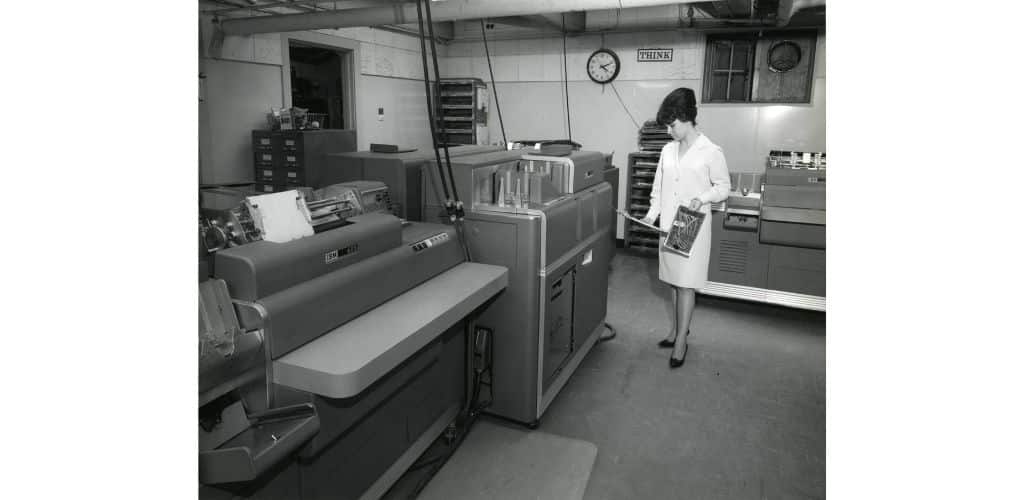The Federal Circuit has affirmed a lower court decision that patent claims for methods and systems for improving how search results are displayed to users are patent-ineligible.
The case is IBM Corp. v. Zillow Group, Inc.
At issue are two patents owned by IBM, U.S. Patent Nos. 6,778,193 and 6,785,676.
The ‘193 patent is for a “graphical user interface for a customer self-service system that performs resource search and selection.” The claimed invention seeks to enhance how search results are displayed to a user by offering three “visual workspaces” that streamline how users input search information.
The ‘676 patent is for a method of “annotating resource results obtained in a customer self-service system that performs resource search and selection.”
IBM sued Zillow for infringing the patents. Zillow moved to dismiss, arguing that the asserted claims are patent-ineligible under 35 U.S.C. § 101.
The district court found that the claims of the ‘676 patent were “aimed at offering a user `the most beneficial and meaningful way’ to view the results of a query . . . and not at advancing computer capabilities per se.”
The district court noted that
the processes could “be performed with a pen and paper, albeit not with the speed of a computer, and they are focused on the intangible of information,” and further that the claims were merely “result[s]-oriented.”
With respect to the ‘193 patent, the district court found that
the claims were directed to the abstract idea of “more precisely tailoring the outcome of a query by guiding users (via icons, pull-down menus, dialogue boxes, and the like) to make choices about specific context variables, rather than requiring them to formulate and enter detailed search criteria.”
IBM argued that user context icons, separate workstations, and iterative navigation were inventive concepts, but the district court found these things were “well-understood, routine, or conventional at the time of the invention” (2007).
The results, said the court,
do[] not …concern the computer’s or graphical user interface’s capability or functionality; [they] relate[] merely to the user’s experience and satisfaction with the search process and results.
As the Federal Circuit explained,
The Supreme Court has laid out a two-step framework for evaluating patent eligibility in Alice Corp. v. CLS Bank International, 573 U.S. 208 (2014) and Mayo Collaborative Services v. Prometheus Laboratories, Inc., 566 U.S. 66 (2012).
At step one, we determine whether a patent claim is directed to an unpatentable law of nature, natural phenomena, or abstract idea. … “In cases involving software innovations, [the step one] inquiry often turns on whether the claims focus on specific asserted improvements in computer capabilities or instead on a process or system that qualifies [as] an abstract idea for which computers are invoked merely as a tool.” …Furthermore, “improving a user’s experience while using a computer application is not, without more, sufficient to render the claims” patent-eligible at step one. … “In applying step two of the Alice analysis, we `determine whether the claims do significantly more than simply describe [the] abstract method’ and thus transform the abstract idea into patentable subject matter.”
IBM argued that the district court erred at Alice step one by “overgeneralizing the ‘193 patent to an abstract idea based on inaccurate analogies to manual pen-and-paper methods.”
The Federal Circuit disagreed with IBM, and agreed with the district court that the claims of the ‘193 patent “possess the following indicia of abstractness”:
(i) describing processes that can be performed with a pen and paper;
(ii) using claim language that is result-oriented; and
(iii) focusing on an intangible, namely information.
The Federal Circuit noted that the district court also concluded that the ‘193 patent “merely mimics what humans do to search for information, with the added feature of conducting the entire exercise on a computer.”
Similarly, the Federal Circuit agreed with the district court that the claims of the ‘676 patent were abstract.
The decision shows the need to make more than conclusory allegations of “inventiveness” in a patent application.
Also, the decision suggests that claims must do more than just improve user experience to be patentable.
Just like the haiku above, we like to keep our posts short and sweet. Hopefully, you found this bite-sized information helpful. If you would like more information, please do not hesitate to contact us here.


